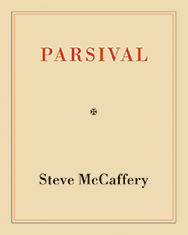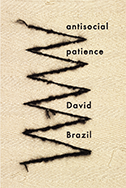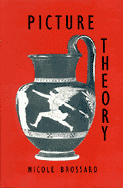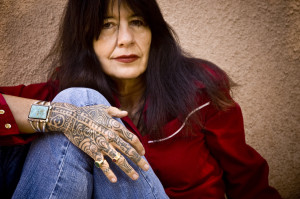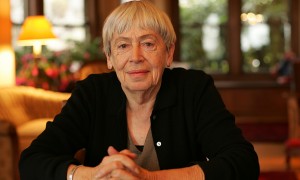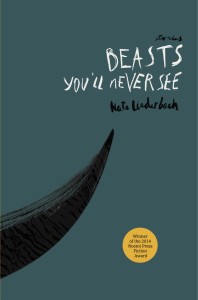Johanna Skibsrud: Quartet for the End of Time (A Novel)
March 6, 2016 by David
Filed under Fiction, WritersCast
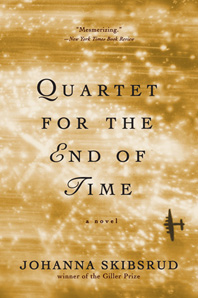 9780393351828 – W.W. Norton – 480 pages – paperback – ebook versions available at lower prices.
9780393351828 – W.W. Norton – 480 pages – paperback – ebook versions available at lower prices.
I’ve been interested in Canadian writer Johanna Skibsrud’s work for several years, in fact since interviewing independent publisher Andrew Steves of Gaspereau Press. The small Nova Scotia based press was the original publisher of Skibsrud’s first novel, The Sentimentalists, selected for the prestigious Giller Prize in 2010. It was a major literary event in Canada for such a tiny press to be recognized for publishing a fine novel that ultimately became a commercially successful book.
Skibsrud is a prolific and multi-talented writer. Her short story collection, This Will Be Difficult to Explain and Other Stories was published in 2011 and shortlisted for Canada’s Danuta Gleed Award. She has also published two books of poetry: Late Nights With Wild Cowboys (2008), which was shortlisted for the Gerald Lampert Award for the best first book of poetry by a Canadian poet, and I Do Not Think That I Could Love a Human Being (2010), which was short-listed for the 2011 Atlantic Poetry Prize.
Skibsrud now teaches at the University of Arizona in Tucson, returning to Canada with her family every summer. Since I had the good fortune to be visiting Tucson in January, 2016, I interviewed Johanna there about her newest novel, The Quartet for the End of Time.
This book is inspired by and structured to follow Oliver Messiaen’s chamber piece of the same name (Quatuor pour la fin du temps). Messiaen’s piece was composed and first performed in 1941 while he was a prisoner of war in a German prison camp. His beautiful and haunting composition was in turn inspired by a text from the Book of Revelation:
And I saw another mighty angel come down from heaven, clothed with a cloud: and a rainbow was upon his head, and his face was as it were the sun, and his feet as pillars of fire … and he set his right foot upon the sea, and his left foot on the earth …. And the angel which I saw stand upon the sea and upon the earth lifted up his hand to heaven, and sware by him that liveth for ever and ever … that there should be time no longer: But in the days of the voice of the seventh angel, when he shall begin to sound, the mystery of God should be finished ….
Skibsrud’s novel is centered on a single moment of betrayal and how it affects the four characters whose stories are woven together during the period of the Bonus Army march and the 1930s, leading up to and then through the period of World War II.
The novel’s beginning is about Bonus Army marcher and World War I veteran Arthur Sinclair, who is falsely accused of conspiracy and then disappears. The mystery of this event will affect his son, Douglas and also Alden and Sutton Kelly, the children of a U.S. congressman who become connected to Arthur and Douglas while the marchers are camped in Washington, D.C. The book then follows these characters as they live through the period of massive social change that took place during the period leading up to and during World War II.
This novel is thoroughly compelling, beautifully written, complex in form and lyrical in language. I think Johanna has succeeded in her effort to imagine a story of loss and love through the lens of a complicated period of modern history. Tim O’Brien said this about the book, praising “…its intimate and completely compelling portraits of human beings struggling to do the right thing under ambiguous moral circumstances.”
I very much enjoyed talking with Johanna Skibsrud about this book and her work as a writer. She is as intelligent and interesting to talk to as she is to read. This interview was recorded in her office at the University of Arizona. If you want to learn more about this author’s work, I recommend visiting Johanna’s website.
And if you’re interested in the Bonus March, which is a far too little known, and truly disheartening episode of American history, you might also be interested in Georgia Lowe’s novel, The Bonus. I talked to her about this book and the Bonus March story for Writerscast in 2012.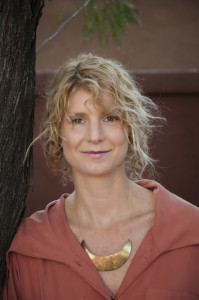
Podcast: Play in new window | Download
David Wilk talks with James Sherry of Segue Foundation
February 22, 2016 by David
Filed under Publishing History, PublishingTalks
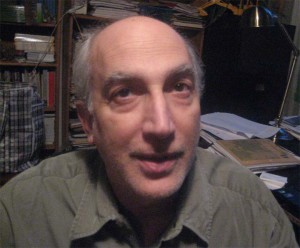 Publishing Talks began as a series of conversations with book industry professionals and others involved in media and technology about the future of publishing, books, and culture. As we continue to experience disruption and change in all media businesses, I’ve been talking with some of the people involved in our industry about how publishing might evolve as our culture is affected by technology and the larger context of civilization and economics.
Publishing Talks began as a series of conversations with book industry professionals and others involved in media and technology about the future of publishing, books, and culture. As we continue to experience disruption and change in all media businesses, I’ve been talking with some of the people involved in our industry about how publishing might evolve as our culture is affected by technology and the larger context of civilization and economics.
I’ve now expanded the series to include conversations that go beyond the future of publishing. I’ve talked with editors and publishers who have been innovators and leaders in independent publishing in the past and into the present, and will continue to explore the ebb and flow of writing, books, and publishing in all sorts of forms and formats, as change continues to be the one constant we can count on.
It’s my hope that these conversations can help us understand the outlines of what is happening in publishing and writing, and how we might ourselves interact with and influence the future of publishing as it unfolds.
The latest in this series of interviews with important independent publishers and editors is my talk with yet another old friend, James Sherry, founder of both Roof Books and the Segue Foundation, in New York City. I have followed and admired his writing and publishing for more than three decades now.
Sherry is the author of 14 books of poetry and prose, most recently Oops! Environmental Poetics (2014). He is the publisher of Roof Books, a press he founded in 1979, and the Segue Foundation, a nonprofit chartered in 1977. He lives in New York City.
With Roof Books and Segue, James has been a significant force in the promotion of experimental and innovative writing, both as a publisher, with more than 150 titles now in print, and as a venue for live events and poetry readings. At one point, Segue was the distributor for some of the most significant literary journals and small presses, including, notably, L=A=N=G=U=A=G=E, edited by Charles Bernstein and Bruce Andrews.
For this interview, I had the opportunity to speak with James Sherry in New York City, where he and Segue are going strong – the Segue calendar of events demonstrates some of the best of contemporary innovative writing, and Roof Books also continues to produce significant publications that anyone interested in modern poetry should be following.
Podcast: Play in new window | Download
Joy Harjo: Crazy Brave – A Memoir
February 8, 2016 by David
Filed under Non-Fiction, Poetry, WritersCast
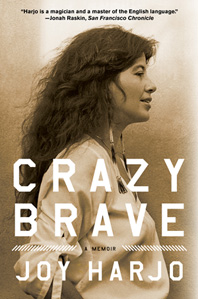 978-0-393-34543-8 – W.W. Norton – paperback – 176 pages – $14.95 (eBook versions available at lower prices)
978-0-393-34543-8 – W.W. Norton – paperback – 176 pages – $14.95 (eBook versions available at lower prices)
Joy Harjo has been one of my poet heroes for a really long time. I have been reading her poems for so many years I have lost count. Her writing is inspiring, mystical, deeply human and politically explosive. The perfect word to describe Joy’s work is “unflinching,” which she is with herself and with her commitment to following poetry and spirit wherever it takes her.
Recently I read her very personal memoir of self becoming called Crazy Brave, and was stunned by the language, heart and soul of this book. This is the story of Joy Harjo’s becoming a person, unfolding into poetry, and discovering her true self.
The writing in this book is literally transcendent, as Harjo recounts the her earliest memories and family life.
Here are the basics: Joy Harjo was born in Tulsa, Oklahoma and is a member of the Mvskoke Nation. Her mother remarried a deeply abusive man, and Harjo was lucky to escape to an Indian arts boarding school and from there went on to get her BA from the University of New Mexico and eventually an MFA from the Iowa Writers’ Workshop.
Crazy Brave is about all of this, but it is really the telling of her path into poetry, the words that saved her, the voice that enabled her to become. It’s a beautiful, power-full, magical book I urge you to read as soon as possible. This is a book whose inner song will stay with you for a long time. Joy Harjo once said this about her own work: I feel strongly that I have a responsibility to all the sources that I am: to all past and future ancestors, to my home country, to all places that I touch down on and that are myself, to all voices, all women, all of my tribe, all people, all earth, and beyond that to all beginnings and endings. In a strange kind of sense [writing] frees me to believe in myself, to be able to speak, to have voice, because I have to; it is my survival.
It was a heartfelt pleasure for me to speak to Joy Harjo about this book and her work as a writer. If you’ve never read her poetry, you can find some of her work online, including reading her fine poem, She Had Some Horses.
And here, a poem I really love:
Perhaps the World Ends Here
“Perhaps the World Ends Here” from The Woman Who Fell From the Sky by Joy Harjo. Copyright © 1994 by Joy Harjo
Podcast: Play in new window | Download
David Wilk talks with John O’Brien of Dalkey Archive Press
January 26, 2016 by David
Filed under Publishing History, PublishingTalks
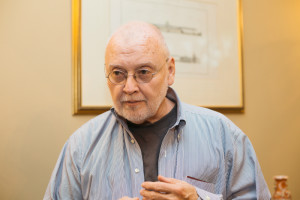 Publishing Talks began as a series of conversations with book industry professionals and others involved in media and technology about the future of publishing, books, and culture. As we continue to experience disruption and change in all media businesses, I’ve been talking with some of the people involved in our industry about how publishing might evolve as our culture is affected by technology and the larger context of civilization and economics.
Publishing Talks began as a series of conversations with book industry professionals and others involved in media and technology about the future of publishing, books, and culture. As we continue to experience disruption and change in all media businesses, I’ve been talking with some of the people involved in our industry about how publishing might evolve as our culture is affected by technology and the larger context of civilization and economics.
I’ve now expanded the series to include conversations that go beyond the future of publishing. I’ve talked with editors and publishers who have been innovators and leaders in independent publishing in the past and into the present, and will continue to explore the ebb and flow of writing, books, and publishing in all sorts of forms and formats, as change continues to be the one constant we can count on.
It’s my hope that these conversations can help us understand the outlines of what is happening in publishing and writing, and how we might ourselves interact with and influence the future of publishing as it unfolds.
The latest in this series of interviews with publishers and editors is my talk with another old friend, John O’Brien, founder of Dalkey Archive Press and the Review of Contemporary Fiction. The journal began in 1981 and the press was launched in 1984. It’s a remarkable and singular enterprise, committed to publishing internationally as almost no other American publisher. Today the press and journal are based in Victoria, Texas through the auspices of the University of Houston at Victoria, and in Dublin, Ireland, with offices at the Trinity University.
If you are interested in the history of the press as explained by John himself, there is an excellent descriptive piece about Dalkey on its own website here. John places the Review (RCF) and the press (Dalkey) as coming literally from his own interest in writers of substance who were and still are not often included in the mainstream of literary culture. In that way, John and his publishing have always been self identified as outsiders, but of course through his own critical and publishing efforts, and other circumstances, no small number of the writers that have either been covered in RCF or published by Dalkey (or both) have reached a meaningful level of recognition and significance over these many years of the his work.
It is no small thing to have been at this work for so long, and so well. The internationalist tendency here is a strong one, from Luisa Valenzuela to Wallace Markham, to Flann O’Brien and many others, John has helped introduce an incredible range of writers from all over the world to North American readers, and vastly expanded the literary landscape for many of us. His commitment to a range of American writers like Paul Metcalf, Gilbert Sorrentino, Doug Woolf and many others, has been nothing short of heroic.
Writing on the Press’ own website, this is what John says about his goals for Dalkey and RCF: “I wanted the Press to define the contemporary period, or at least what I saw as what was most important in the contemporary period. Further, I wanted these books permanently protected, which is why from the start the Press has kept all of its fiction in print, regardless of sales. And as with the Review, I wanted the books to represent what was happening around the world rather than more or less being confined to the United States. Like the Review, Dalkey Archive Press was and is a hopelessly quixotic venture.”
In 2011, Dalkey Archive received a Lifetime Achievement Award from the National Book Critics Circle, and in 2015 John O’Brien was made a knight in the Orde des Arts et des Lettres for his contributions to publishing French literature abroad. Not bad for such a “hopelessly quixotic” operation.
John and I have many interests in common and count each others as friends and fellow travelers in literature and writing. Having this conversation about RCF and Dalkey, programs I believe have incalculable value to our literary culture, was a true pleasure for me, and one that I will always treasure.
Length alert: this is a longer conversation than most (68 minutes), but I hope will be well worth the time spent in listening. Thanks!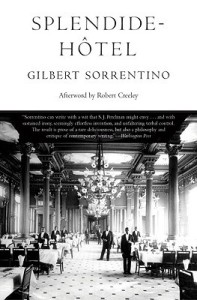
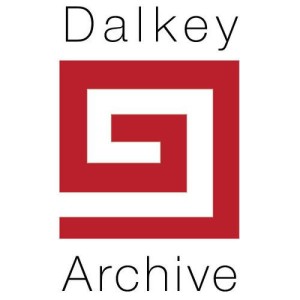
Podcast: Play in new window | Download
Ursula Le Guin: Late in the Day (Poems 2010-2014)
January 16, 2016 by David
Filed under Fiction, Poetry, WritersCast
Ursula Le Guin has had a long and wonderful career as a writer. Her extraordinary work has influenced many other writers, particularly in science fiction, for which she is probably best known, but Ursula has also written extensively about the art and craft of writing, as well as children’s books, and books for young adults. She is also a poet of some note, with four poetry collections published. Altogether she has had published almost fifty books and more than a hundred short stories.
Ursula was born and raised in Berkeley, California, where her parents were the anthropologist Alfred Kroeber and the writer Theodora Kroeber, author of the very famous book, Ishi. She went to Radcliffe College and did graduate work at Columbia University. Ursula married Charles A. Le Guin, a historian, in 1953; they have lived in Portland, Oregon since 1958.
Le Guin’s best known fantasy works, the six Books of Earthsea, have sold millions of copies in America and England. Her first major work of science fiction was The Left Hand of Darkness, whose radical investigation of gender roles and literary complexity have made the book a classic and a must read work of literature. Among her books for children, the Catwings series has become extremely popular. She also published a translation of Lao Tzu’s Tao Te Ching, after forty years of working on it and practicing Taoist principles in her life.
Three of Le Guin’s books have been finalists for the American Book Award and the Pulitzer Prize, and among her honors are a National Book Award, five Hugo Awards, five Nebula Awards, SFWA’s Grand Master, the PEN/Malamud Award, and in 2014 she was awarded the National Book Foundation Medal for Distinguished Contribution to American Letters.
While Le Guin is no longer writing fiction, she continues to write poetry, as she has done virtually her entire life. With the appearance of this new collection of poems from 2010-2014, Late in the Day, published by the excellent PM Press, I had the opportunity to speak with her about her writing and her recent writing. In these poems she explores a variety of poetic forms, all of which she easily masters. The poems are most often about relationships, connecting to the natural world, to myth, story, and of course, other humans, always with a careful eye and a deft understanding of the complexity of all things.
And the Afterword on poetic form and free verse is itself a small masterpiece of explication and joy. Ursula Le Guin is truly one of the great writers of our time. It is my great honor to have had the chance to speak with her here for Writerscast. If you are not aware of Ms. Le Guin’s work as a poet, this new collection of sharp and compassionate compressed expression is definitely worth your time to read. We talked about many subjects, including writing, her career, Oregon, the recent occupation at Malheur, a place with which she is very familiar, and of course the poems in this book, one of which she was kind enough to read aloud for us.
There is an excellent interview transcription with Ursula by Choire Sicha in Interview Magazine; the author’s own website is a rich source of material by and about her great body of work.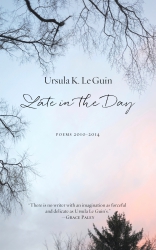
Podcast: Play in new window | Download
David Wilk talks with Bill Henderson of Pushcart Press
January 4, 2016 by David
Filed under Publishing History, PublishingTalks
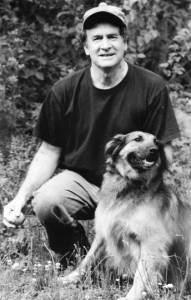 Publishing Talks began as a series of conversations with book industry professionals and others involved in media and technology about the future of publishing, books, and culture. As we continue to experience disruption and change in all media businesses, I’ve been talking with some of the people involved in our industry about how publishing might evolve as our culture is affected by technology and the larger context of civilization and economics.
Publishing Talks began as a series of conversations with book industry professionals and others involved in media and technology about the future of publishing, books, and culture. As we continue to experience disruption and change in all media businesses, I’ve been talking with some of the people involved in our industry about how publishing might evolve as our culture is affected by technology and the larger context of civilization and economics.
I’ve now expanded the series to include conversations that go beyond the future of publishing. I’ve talked with editors and publishers who have been innovators and leaders in independent publishing in the past and into the present, and will continue to explore the ebb and flow of writing, books, and publishing in all sorts of forms and formats, as change continues to be the one constant we can count on.
It’s my hope that these conversations can help us understand the outlines of what is happening in publishing and writing, and how we might ourselves interact with and influence the future of publishing as it unfolds.
It is my great pleasure and honor to have a conversation about publishing with extraordinary Bill Henderson, the founder and editor of Pushcart Press and the Pushcart prize.
Pushcart was founded in 1972, the same year Bill ended his gainful employment as an editor at Doubleday (which is now one of the many imprints of Penguin Random House). Bill’s first book was the very important Publish It Yourself Handbook, published in 1973 and distributed then more or less by hand, at least initially. This book is a collection of essays by such luminaries as Anais Nin, Stewart Brand, Virginia and Leonard Woolf. Over the years it has sold over 70,000 copies through four editions and has been a touchstone for independent publishing.
But it was really Henderson’s idea for a prize and anthology to recognize and celebrate the best work of the independent magazines and presses that were flowering in those days that has made Pushcart so meaningful and important. It was in 1976 that Bill and a group of Founding Editors he enlisted, including Paul Bowles, Ralph Ellison, Joyce Carol Oates and Reynolds Price, that began the Pushcart Prize anthology that is still published annually, now forty years on.
The original model is still in place. Publishers, magazines and Pushcart’s contributing editors nominate work they feel is their best, and Bill himself reads everything and selects what he feels is the best work from the hundreds of works submitted. It’s an incredible accomplishment that has helped launch and sustain the work of now thousands of writers and presses.
Pushcart is adamantly individualistic and essentially noncommercial. Its books are distributed by WW Norton, but otherwise, Bill is a one person operation. The press is now a nonprofit, but that means he has to raise money for it, and that takes time too.
As our conversation together will demonstrate, Bill shows no sign of slowing down and no sign of changing his opinion about what matters in writing and publishing. His commitment to the work is unwavering, and what he has done is truly magnificent. I am proud to have had an association with Pushcart from its inception, and am in awe of the work Bill and his operation has accomplished over these many years.
You can learn more about Pushcart here. Order the new anthology from your favorite independent bookstore, and if you are as impressed as I think you will be, make a donation to Pushcart here.
And there is even more to the Pushcart effort – Bill Henderson operates a bookstore on his property every summer in Maine, where he has also built a cathedral of local stone (profiled in the NY Times!)
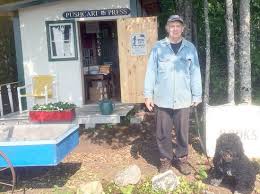
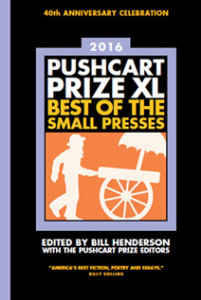
Podcast: Play in new window | Download
David Wilk talks with Nicolás Kanellos of Arte Publico Press
December 14, 2015 by David
Filed under Publishing History, PublishingTalks
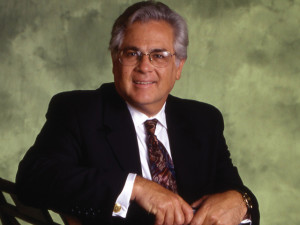 Publishing Talks began as a series of conversations with book industry professionals and others involved in media and technology about the future of publishing, books, and culture. As we continue to experience disruption and change in all media businesses, I’ve been talking with some of the people involved in our industry about how publishing might evolve as our culture is affected by technology and the larger context of civilization and economics.
Publishing Talks began as a series of conversations with book industry professionals and others involved in media and technology about the future of publishing, books, and culture. As we continue to experience disruption and change in all media businesses, I’ve been talking with some of the people involved in our industry about how publishing might evolve as our culture is affected by technology and the larger context of civilization and economics.
I’ve now expanded the series to include conversations that go beyond the future of publishing. I’ve talked with editors and publishers who have been innovators and leaders in independent publishing in the past and into the present, and will continue to explore the ebb and flow of writing, books, and publishing in all sorts of forms and formats, as change continues to be the one constant we can count on.
It’s my hope that these conversations can help us understand the outlines of what is happening in publishing and writing, and how we might ourselves interact with and influence the future of publishing as it unfolds.
Over the past several years, I have had a number of conversations with the literary editors and publishers whose work in independent publishing has been influential during the past four, or sometimes even five decades. Independent literary publishing, both magazines and books, has been and continues to be at the forefront of cultural change, enabling independent and outsider writing to be available to readers. One of the most important of these presses is Arte Publico Press, founded by writer and scholar Nicolás Kanellos, housed at the University of Houston for many years now.
As Nicolás says about his founding of the press: “In the early 1970s, it became obvious that Hispanic writers were not being published by mainstream presses. Because there was no outlet for the creative efforts of these Latino writers, their work was condemned to be forgotten, lost or just delivered orally through performance.”
Starting, as so many publishers have done, with a literary magazine, Kanellos founded the Revista Chicana-Riqueña in Gary, Indiana, in 1972. Revisita was a quarterly magazine for Latino literature and cultural arts that subsequently evolved into the well respected Americas Review, which published its final issue, Volume 25, Numbers 1-4, in 1999.
Kanellos then founded Arte Público Press in 1979 to further expand the work of providing a n important forum for Hispanic literature. In 1980, Kanellos was offered a teaching position at the University of Houston, and brought Arte Publico with him, where it has now thrived for 35 years.
Arte Publico has published an incredible range of important Hispanic writers of many different backgrounds since its beginnings nearly four decades ago. And Kanellos and the press have expanded into a range of other important programs, including collecting and archiving lost Latino writings from the colonial era to today through the Recovering the U.S. Hispanic Literary Heritage project, and more recently a Latino children’s publishing program. The list of authors that Arte Publico has published is truly astonishing, and its impact on writers and readers alike is immeasurable.
It is my great pleasure to speak with my old friend Nicolás Kanellos for Writerscast about his work as editor, publisher and literary impressario. Publisher website here. NBC Latino profile of Kanellos and the press here.
Note to listeners, as with most of the Publishing Talks interviews, this is longer than most podcasts at 49 minutes, but hopefully well worth your time to listen and enjoy.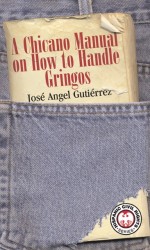
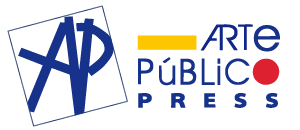
Podcast: Play in new window | Download
David Wilk talks with Jane Friedman
November 30, 2015 by David
Filed under Ebooks and Digital Publishing, Publishing History, PublishingTalks, Technology, The Future
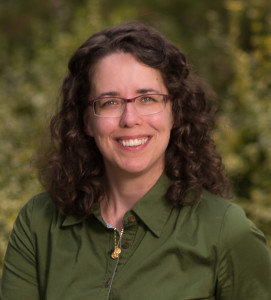 Publishing Talks began as a series of conversations with book industry professionals and others involved in media and technology about the future of publishing, books, and culture. As we continue to experience disruption and change in all media businesses, I’ve been talking with some of the people involved in our industry about how publishing might evolve as our culture is affected by technology and the larger context of civilization and economics.
Publishing Talks began as a series of conversations with book industry professionals and others involved in media and technology about the future of publishing, books, and culture. As we continue to experience disruption and change in all media businesses, I’ve been talking with some of the people involved in our industry about how publishing might evolve as our culture is affected by technology and the larger context of civilization and economics.
I’ve now expanded the series to include conversations that go beyond the future of publishing. I’ve talked with editors and publishers who have been innovators and leaders in independent publishing in the past and into the present, and will continue to explore the ebb and flow of writing, books, and publishing in all sorts of forms and formats, as change continues to be the one constant we can count on.
It’s my hope that these conversations can help us understand the outlines of what is happening in publishing and writing, and how we might ourselves interact with and influence the future of publishing as it unfolds.
There are two Jane Friedmans in the book business, which has caused no end of confusion for all sorts of people and many occasions (even Google can’t figure this one out).
One Jane Friedman is the well known and iconic publishing executive who is the founder and CEO of Open Road Media, a leading digital book publisher. The “other” Jane Friedman, whose work I have been following for a number of years, is an expert in social media and digital marketing who advises and teaches writers in marketing their work and how to be writers in the current rapidly changing environment, as well as working with publishers and others on a wide variety of subjects and concerns. She continually impresses with her intelligence, acuity, passion for writing, and compassion for writers.
This Jane Friedman worked at Writer’s Digest, where she ultimately became publisher and editorial director, and recently she served as the digital editor for the Virginia Quarterly Review, where she led a digital overhaul of the magazine. She is now teaching digital media and publishing at the University of Virginia and writes a column for Publishers Weekly (I frequently have recommended her smartly written columns). The Great Courses has released her 24-lecture series, How to Publish Your Book and she has a book of her own forthcoming from the University of Chicago Press called The Business of Being a Writer (2017).
Given that her thinking, writing and teaching has placed her in position to know a great deal about how things are for writers these days, I thought it would be good to talk to the “other” Jane Friedman for Publishing Talks. Our stimulating conversation follows. What Jane has to say will be valuable and important for writers and publishers alike.
You can follow Jane Friedman at her website, where she offers a myriad of insightful, practical and useful information, advice for free, and also online courses and consulting services at very reasonable rates.
Nice quote from Jane on her site: “The 3 things very important to me: compassion, service, and independence. I avoid environments (or people) lacking these qualities, especially organizations without a strong service component—a strong why—driving their work-play.”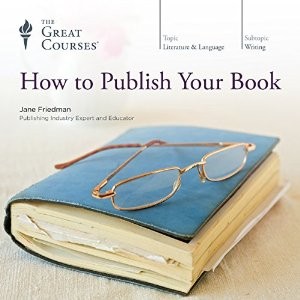
Podcast: Play in new window | Download
Jesse Kornbluth: Married Sex
November 18, 2015 by David
Filed under Fiction, WritersCast
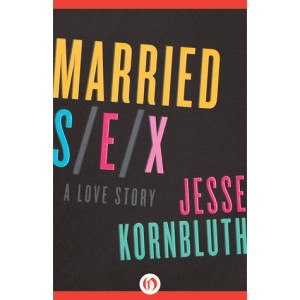 978-1504011259 – Open Road Media – paperback – 246 pages – $12.99 (ebook versions available at lower cost)
978-1504011259 – Open Road Media – paperback – 246 pages – $12.99 (ebook versions available at lower cost)
I’ve been a subscriber to Jesse Kornbluth’s excellent newsletter, HeadButler, for awhile now, and have very much enjoyed his approach to books, music and art (politics and culture too). In many ways, he represents to me the quintessential New York intellectual: smart, well read, opinionated and caring about the future of humanity and our civilization. He’s a writer of screenplays and a number of interesting and successful nonfiction books, and he has long been involved in the emerging forms and formats of online digitally-based culture, going back to his days as editorial director at AOL.
Married Sex is his first novel. It is short, extremely well written, and completely compelling. Jesse has brilliantly portrayed his characters, both male and female, and pinpoints them for the reader in very few words. It’s also a fun book to read. Sex with intelligence, you might say.
Without giving away very much of the story, let’s just say that the focus is on a couple who have been together a long time in a committed, deeply sexual romantic relationship. Then something happens that changes everything. You have to read the book to find out more. I think you will enjoy this book a lot. I love this line about it from Kirkus: “A libidinous fairy tale with an unusual Prince Charming.”
And I also think you will enjoy listening to my conversation with Jesse as well. He’s funny and trenchant, and we had a great time talking to one another about the book, his work, and how this book fits into his life. And oh yes, let’s get this settled right away – it’s a novel, not a memoir.
I often recommend Jesse’s newsletter and website to friends, HeadButler.com, what he calls “a cultural concierge site.” I’ve discovered and sometimes rediscovered a number of books and records through his literate and intelligent recommendations. It’s all free, based on the perhaps dubious concept of readers buying things he recommends from Amazon.
Jesse Kornbuth was the Editorial Director at AOL, was a contributing editor to Vanity Fair and New York magazines and is the author of four nonfiction books, including Highly Confident: The Crime and Punishment of Michael Milken. He has written several screenplays for ABC, PBS, and Warner Bros.
Married Sex is Kornbluth’s first novel. He lives in Manhattan with his family. I am looking forward to reading his next book.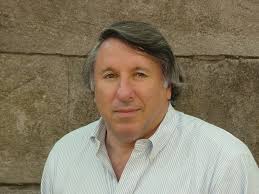
Podcast: Play in new window | Download
David Wilk talks with Carmen Giménez Smith of Noemi Press at Woodland Pattern
November 11, 2015 by David
Filed under Publishing History, PublishingTalks, The Future
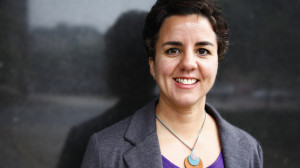 Publishing Talks began as a series of conversations with book industry professionals and others involved in media and technology about the future of publishing, books, and culture. As we continue to experience disruption and change in all media businesses, I’ve been talking with some of the people involved in our industry about how publishing might evolve as our culture is affected by technology and the larger context of civilization and economics.
Publishing Talks began as a series of conversations with book industry professionals and others involved in media and technology about the future of publishing, books, and culture. As we continue to experience disruption and change in all media businesses, I’ve been talking with some of the people involved in our industry about how publishing might evolve as our culture is affected by technology and the larger context of civilization and economics.
I’ve now expanded the series to include conversations that go beyond the future of publishing. I’ve talked with editors and publishers who have been innovators and leaders in independent publishing in the past and into the present, and will continue to explore the ebb and flow of writing, books, and publishing in all sorts of forms and formats, as change continues to be the one constant we can count on.
It’s my hope that these conversations can help us understand the outlines of what is happening in publishing and writing, and how we might ourselves interact with and influence the future of publishing as it unfolds.
I recently had the honor of interviewing editor, writer and teacher Carmen Giménez Smith at the renowned Woodland Pattern Book Center in Milwaukee, Wisconsin. Carmen is the current editor of the now 50 year old literary magazine, Puerto del Sol, sponsored by New Mexico State University in Las Cruces. She is also the co-publisher and co-founder of the very fine literary publisher, Noemi Press.
Our conversation took place in on Friday, October 16, 2015 at Woodland Pattern in front of an active and interested audience. This live recording will enable listeners to learn a great deal about two dynamic literary organizations. Happy 50th birthday to Puerto del Sol, and congratulations to Carmen and her colleagues at Noemi for building a long lasting press that has been purposely constructed so that it will continue as a dynamic, living organization long into the future.
More about Carmen Giménez Smith here; she is an extraordinary poet, writer and teacher in addition to her work as editor and publisher. Her newest book is called Milk and Filth from the University of Arizona Press. She is a brilliant writer whose writing I have been grateful to discover. She is tough and politically engaged, her heart and soul showing through the words at every moment. I am sure she is a terrific teacher as well.
Length alert: this conversation is about 53 minutes. I hope you can find the time to hear it through to the end.
And special thanks to Chuck, Mike, Karl and Anne at Woodland Pattern for the opportunity to conduct this conversation in their space. It was really fun and I hope to be able to do this kind of thing again.
More about WP in this Writerscast interview with founders Anne Kingsbury and Karl Gartung from earlier this year.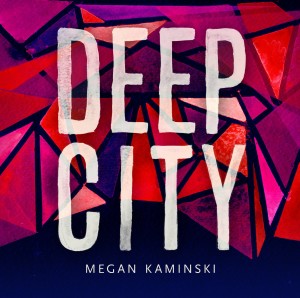
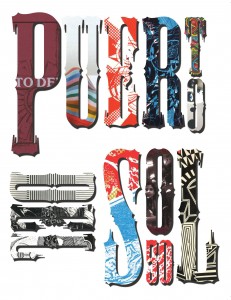

Podcast: Play in new window | Download

